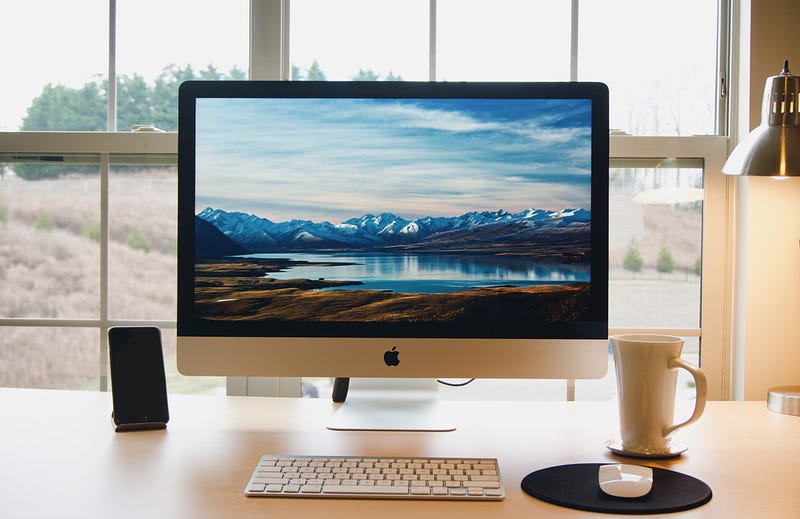The Evolution and Competition of Operating Systems: A Deep Dive
Written on
Chapter 1: The Rise of Personal Computers
The past five decades have witnessed remarkable advancements in technology, particularly with the emergence of the Personal Computer (PC). Originally conceived to bring the computational power of mainframes into homes, the PC has evolved significantly. Its role has transitioned from executing simple tasks to accommodating vast amounts of data for entertainment and various applications. Like their larger counterparts, Personal Computers rely on both hardware and an Operating System (OS) to manage tasks, allocate resources for applications, and ensure the security of vital components. However, what defines a superior Operating System? What criteria differentiate one OS from another?
There are numerous viewpoints and metrics to consider, but here are a few key aspects.
Section 1.1: Functionality of Operating Systems
When assessing a computer's performance, users often evaluate several components, including:
Hardware: The hardware configuration plays a critical role in overall performance. For instance, utilizing cache memory, pipelined architectures, and multicore processors can significantly enhance task execution speed.
Applications: The performance of applications, developed by software engineers, is crucial. Well-designed software—using efficient programming languages, algorithms, and data structures—leads to a satisfying user experience. Conversely, poorly designed applications can result in frustration, regardless of the OS in use.
Graphical User Interfaces (GUIs): Originating in the 1960s, GUIs were designed to make computers more user-friendly. However, some GUIs can introduce excessive overhead, potentially slowing down system performance.
Operating System: Lastly, the OS itself is fundamental. It is responsible for scheduling tasks, managing resources, and maintaining security. The effectiveness of these functions can greatly influence user satisfaction.
"An OS serves as the overseer of all operations, managing requests and tasks beyond the application level. The design quality of an OS directly impacts the user's experience."
Section 1.2: Usability and Ease of Use
As previously mentioned, GUIs have become integral to modern software. Many users prefer not to engage with the underlying mechanics of computers or memorize complex commands. Instead, they opt for GUIs that simplify interactions.
However, not all GUIs are equally appealing. Reasons for a GUI's unpopularity may include:
- Aesthetics: Poor design can deter users. A visually unpleasing interface—characterized by clashing color schemes or excessive clutter—can be off-putting.
- Intuitiveness: A confusing layout can frustrate users. Effective UX design should feel natural and straightforward, while poor design may create feelings of anxiety or confinement.
- User-Friendliness: Interfaces should assist users, not hinder them. For example, if a user loses their input after accidentally navigating away from a text field, it can lead to significant dissatisfaction.
- Complexity: Overly complicated designs can discourage usage, often stemming from subpar software design choices.
While these issues primarily pertain to GUIs, similar considerations apply to the OS as a whole. An effective Operating System should be intuitive and user-friendly.
Chapter 2: Acknowledging Quality in Design
As I contemplate the various Operating Systems available today, I find myself appreciating the Macintosh.

Steve Jobs envisioned aesthetically pleasing products, and Apple has largely fulfilled that vision.
Section 2.1: The Importance of Customizability
Ideally, an Operating System is finalized before its public release. Users expect that post-launch updates will address any issues. Consequently, some Operating Systems, like Mac OS, are closed systems, limiting user modifications. Conversely, open-source systems such as Linux offer users the freedom to customize as they see fit.
While this flexibility may seem unnecessary at first glance, understanding the intricacies of computer science can reveal its value. Users may wish to tweak the OS to enhance their experience, especially if they encounter performance issues, such as their system freezing due to high RAM usage. It would be beneficial if users could instruct the OS to preemptively manage resources and prevent such occurrences.
The first video titled "Android vs iOS: Battle of the Operating Systems (OS)" explores the competition between these two major mobile OS platforms. It analyzes their features, user experience, and market share.
The second video, "Linux VS Windows: The Ultimate Battle!" delves into the ongoing rivalry between these two prominent operating systems, highlighting their strengths and weaknesses in various applications.